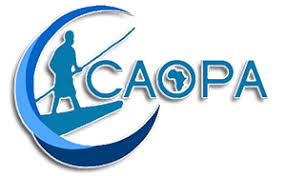Why African small-scale fisheries actors support the FiTI

BERLIN – 8 June. Enhancing transparency and participation in small-scale fisheries governance forms an essential part of the global efforts of the FiTI to achieve a more sustainable management of marine fisheries. In that sense, the FiTI supports existing international instruments, such as the FAO Voluntary Guidelines for Securing Sustainable Small-Scale Fisheries in the Context of Food Security and Poverty Eradication, in which “transparency” and “consultation and participation” were defined as two of the basic guiding principles for the foundation of the SSF Guidelines.
For the African Confederation of Artisanal Fisheries Professional Organisations (CAOPA), which aims at promoting access to information, participation in decision making and access to justice as interrelated rights to achieve sustainable and equitable fisheries, the provision of information that is both accessible and credible is paramount to achieving sustainable and equitable fisheries.
In a contribution paper, CAOPA’s Secretary General Dawda Foday Saine explains why fisheries transparency is at the core of CAOPA’s claims and hence why the CAOPA has been actively supporting the FiTI from the start in summer 2015.
The CAOPA identified seven concrete areas where the FiTI could make a significant impact towards a fisheries management that is sustainable and benefits all stakeholders, including small-scale fisheries actors:
1.–Better and more credible information of status of fish stocks and information on catches and discards will help achieve sustainable fishing;
2. The publicity of access agreements and licensing for industrial fishing will support more accountability;
3. Lifting the veil of secrecy and confidentiality on fisheries management will help close loopholes that make fisheries an ideal sector for crime, and therefore help tackle IUU fishing and corruption;
4. More information on the fisheries sector will highlight the social and economic contribution of the small-scale sector;
5. More transparency on labour standards will be used to raise awareness on the progress being made to improve labour standards in the fisheries sector and will support efforts to abolish slavery and human trafficking;
6. More transparency on subsidies will contribute to reforming government subsidies that are given to the fisheries sector and enable public debates on how government transfers to the sector align with national priorities on the environment, employment and food security;
7. More transparency on public sector projects will support accountability and inclusiveness of small-scale fishers in project consultations, and will ensure that official development assistance is efficient and inclusive.
This paper was presented by CAOPA’s Secretary General Dawda Saine in September 2017 at the occasion of the 5th meeting of ACP Ministers responsible for fisheries and aquaculture.
